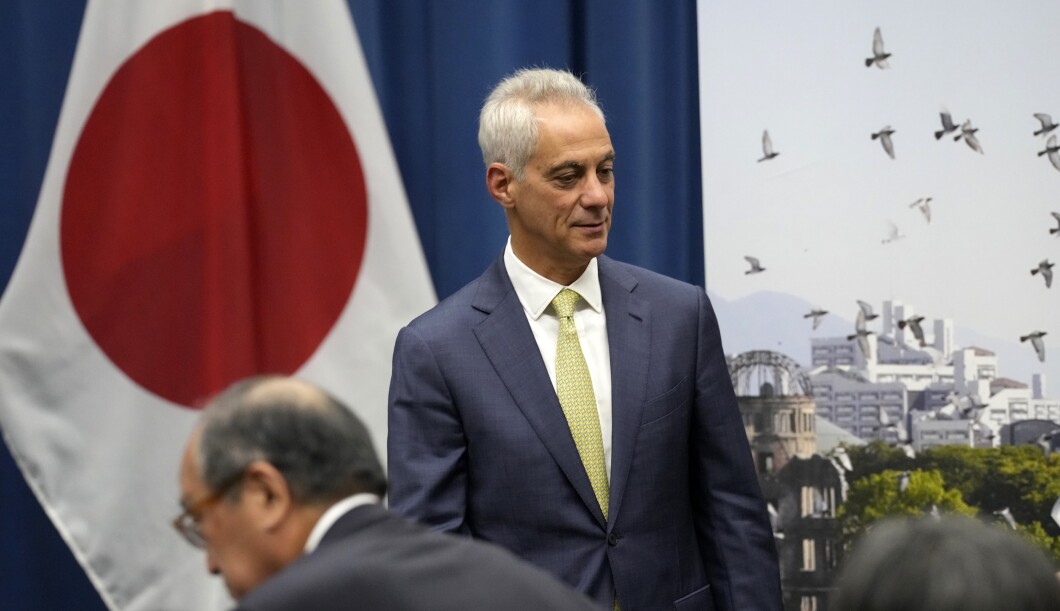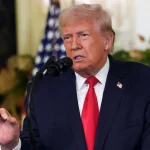
President Joe Biden’s upcoming Camp David summit with the leaders of Japan and South Korea will upend China’s strategy to drive the United States out of the Indo-Pacific, according to U.S. Ambassador Rahm Emanuel.
“China’s entire strategy is based on the premise that America’s No. 1 and No. 2 ally in the region can’t get together and get on the same page,” Emanuel said. “We’ve created something that is exactly what China was hoping would never happen.”
BIDEN TO TRAVEL TO MAUI TO MEET WITH FIRST RESPONDERS AND SURVIVORS OF WILDFIRES
Emanuel, a former White House chief of staff under Barack Obama, has settled in Tokyo as the lead U.S. envoy to one of the most important American allies in the world. Whereas Secretary of State Antony Blinken and other diplomatic officials have modulated their rhetoric on the link between the summit and U.S.-China competition, the former hard-charging politico reveled in the ramifications of Japanese Prime Minister Fumio Kishida and South Korean President Yoon Suk-yeol convening at Camp David.
“Our message is ‘We’re a permanent Pacific power and presence, and you can bet long on America.’ China’s message is ‘We’re the rising power, they’re declining; either get in line or you’re gonna get the Philippines treatment,’” Emanuel told a Brookings Institution audience. “And come Friday, when this occurs at Camp David, this is a fundamental advancement of America’s interest.”

Emanuel’s exultant prognostications reflected widespread delight about the burgeoning interest in cooperation between Tokyo and Seoul, two capitals that have remained largely divided by tensions stemming from the Second World War despite their common bond with the United States. Yet the summit Friday is intended to launch a “trilateral annual summit,” as Biden’s point man for the Indo-Pacific added, in service of integrating the national security postures of the three countries.
“The agreements and the engagements on Friday will be a substantial step forward in recognizing the common security picture that each of the countries are facing,” said Kurt Campbell, the White House National Security Council’s Indo-Pacific coordinator, who appeared at Brookings alongside Emanuel and NSC Senior Director Mira Rapp-Hooper. “We’re taking some initial, quite substantial steps towards recognizing that we face a common horizon and that it will require common actions.”
Chinese officials have condemned such diplomatic maneuvering as an attempt to forge a kind of “mini-NATO” in the Indo-Pacific. Faced with a journalist’s question about whether the trilateral summit marks “the first important step towards a collective security agreement,” Campbell offered Beijing no assurances.
“We can imagine a future with more ambition,” Campbell said. “The key is not to get too far over your skis, to take this a step at a time, to build appropriately, to not get beyond the domestic context of which we’re dealing.”
CLICK HERE TO READ MORE FROM THE WASHINGTON EXAMINER
The sustained focus on the Indo-Pacific comes as a relief to governments throughout the region, according to Campbell. Chinese Foreign Minister Wang Yi characterized the United States as “the biggest destabilizing factor in the world,” but the Biden adviser maintained that several smaller states still see it as a bulwark against the rising communist regime.
“They feel in many respects under unimaginable pressure, huge pressures — economically, diplomatically, and militarily,” Campbell said. “Many of these countries believe that steps that China is taking won’t just amend the system but will destroy it, or make it much less viable as an institution to propel prosperity and peace. … What they witness is a China whose actions have demonstrably changed, in recent years, in ways that threaten their security and that raise larger concerns both nationally and in the region.”






